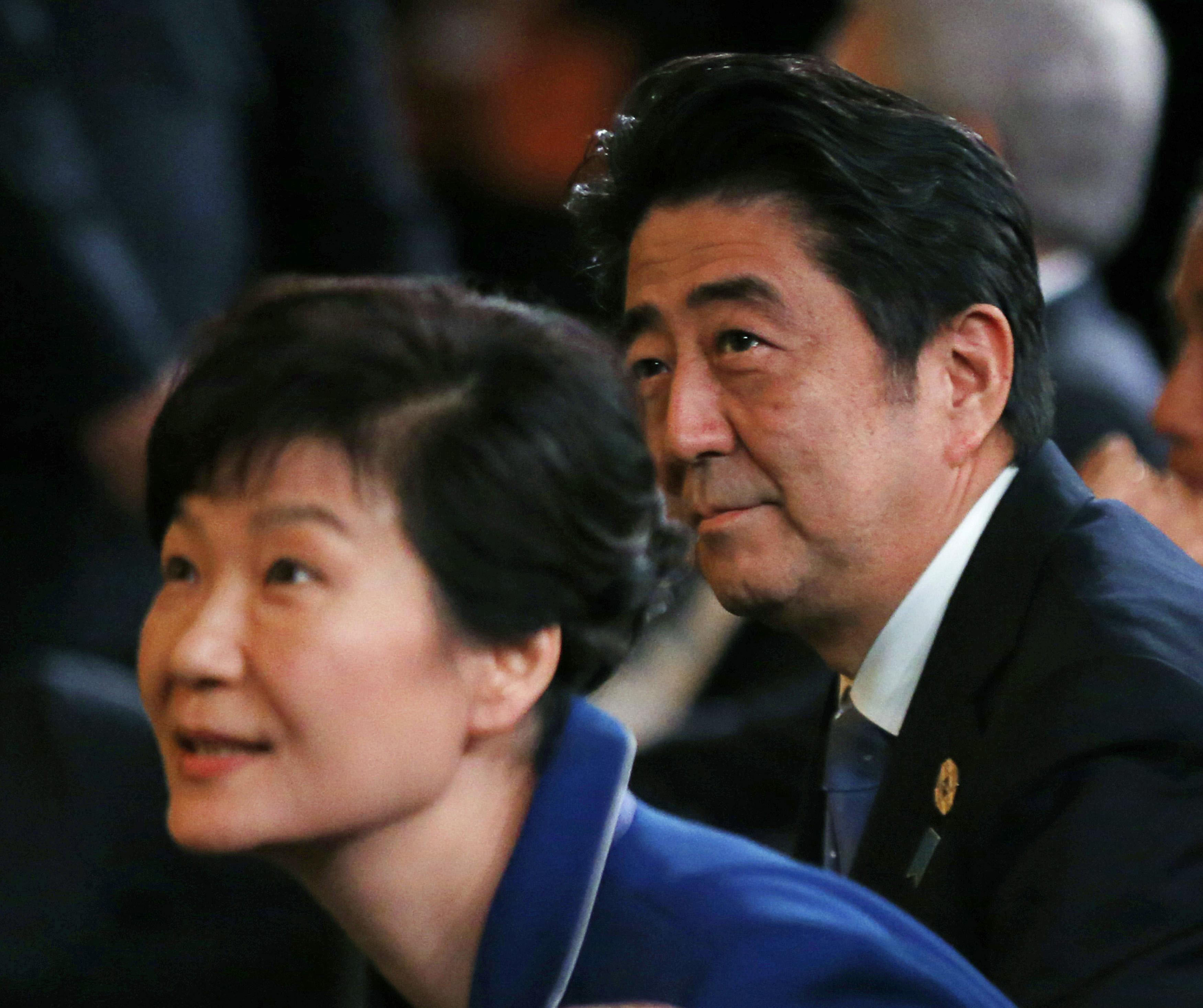As the 50th anniversary of the normalization of ties between Japan and South Korea approaches, it seems there is little to celebrate.
There are all sorts of reasons why Tokyo and Seoul should get along much better, but they don't. They are both liberal democracies that generally embrace the rule of law, with market-oriented capitalist economies that are deeply intertwined bilaterally and with the global trading system. They also face shared threats from North Korea and anxieties about a rising China. Despite such political and ideological similarities and convergent perceptions about the threat environment, Seoul and Tokyo remain at odds over history, and that constrains security cooperation and in turn frustrates Washington.
Brad Glosserman, the executive director of Pacific Forum CSIS, and Scott Snyder, a senior fellow at the Council on Foreign Relations, have co-authored "The Japan-South Korea Identity Clash: East Asian Security and the United States" (Columbia 2015). They are eager to invigorate the Washington-Tokyo-Seoul triangle based on the assumption that the U.S. security presence is, by and large, a force for good, and thus strengthened alliances with and between its two partners make sense and will promote peace and stability in Asia.



